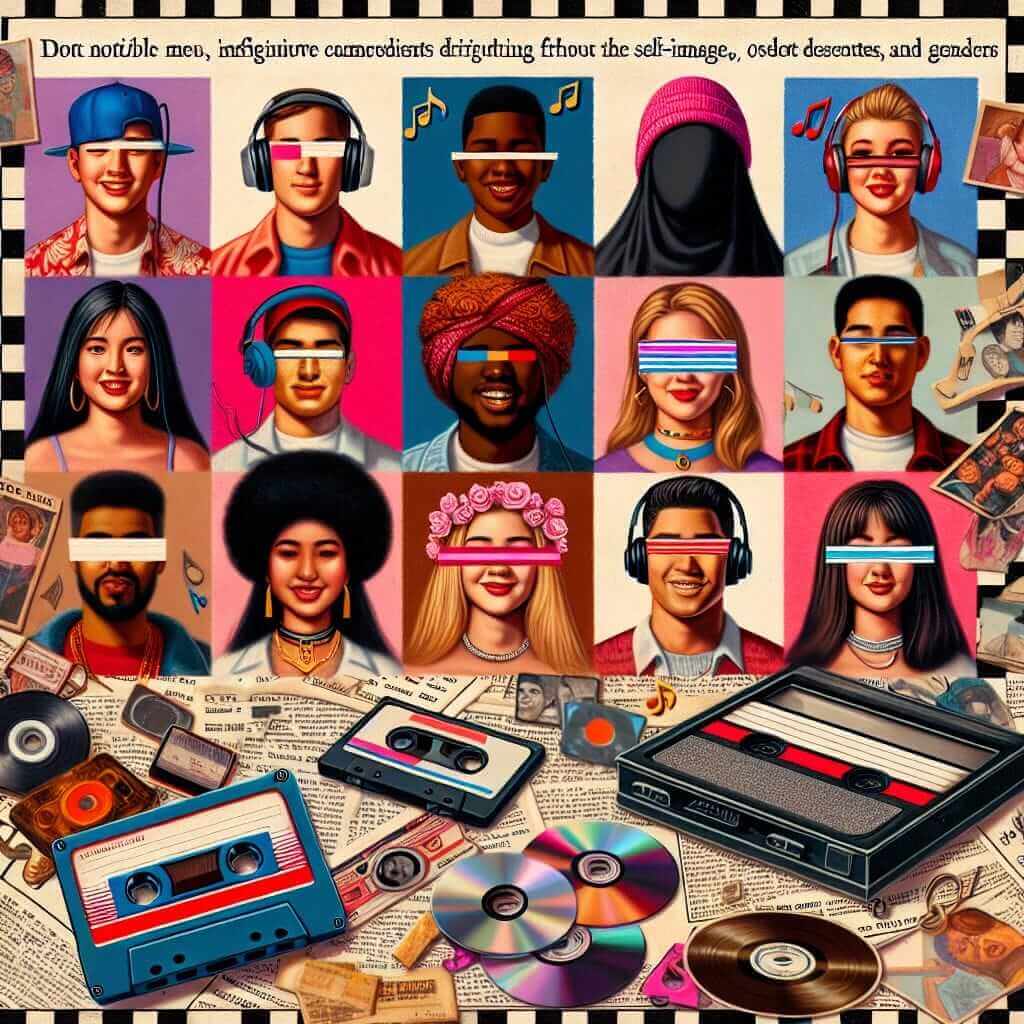Popular culture holds a significant influence over the identity formation of contemporary youth. In this post, we will explore the nuances of how popular culture affects youth, generate suitable IELTS Writing Task 2 prompts, and provide a complete sample essay response.
The Influence of Popular Culture on Youth Identity: An Overview
Popular culture, encompassing music, movies, fashion, social media trends, and celebrities, has a profound effect on the identity development of young people. It is a pervasive force that shapes their values, perceptions, and behaviors. Given its significance, it is a common topic in IELTS Writing Task 2 examinations.
Sample IELTS Writing Task 2 Prompts
- To what extent do you agree or disagree with the statement: “Popular culture has a more significant influence on youth than family and education”?
- Discuss the impacts of popular culture on youth identity in modern society. What are the positive and negative effects?
- Some people believe that the influence of celebrities on young people is overestimated. To what extent do you agree or disagree?

Sample Essay: The Influence of Popular Culture on Youth Identity
Analyzing the Chosen Prompt
Prompt: Discuss the impacts of popular culture on youth identity in modern society. What are the positive and negative effects?
This prompt asks us to explore both the beneficial and detrimental effects of popular culture on young people. The essay will be structured to introduce the topic, discuss the positive impacts, examine the negative impacts, and conclude with a balanced perspective.
Sample Essay
Popular culture significantly impacts youth identity in today’s society. Aspects such as music, movies, fashion, and social media platforms profoundly influence the ways in which young people perceive themselves and the world around them. While popular culture can offer various benefits, it also harbors potential drawbacks. This essay will discuss both the positive and negative effects of popular culture on youth identity.
One of the foremost positive impacts of popular culture on youth is the promotion of self-expression and creativity. Numerous platforms, such as Instagram, TikTok, and YouTube, provide young people with opportunities to showcase their talents and interests. For instance, many young musicians and artists have gained immense followings and career opportunities through these channels, which might not have been possible otherwise. Additionally, popular culture often advocates for diversity and inclusivity, allowing young people to embrace and express their unique identities. This trend towards acceptance can contribute to greater self-esteem and a richer societal tapestry.
Furthermore, popular culture can inform and educate. Movies, music, and television programs frequently address critical social issues such as mental health, racism, and gender equality. These mediums can spark important conversations and foster a more informed and empathetic youth. As a result, young people are often more socially conscious and driven to effect positive change in their communities.
However, the influence of popular culture is not without its challenges. One significant concern is the potential for fostering unrealistic expectations. For instance, social media often portrays idealized versions of life, leading young people to believe that these depictions are attainable standards. This can result in pressures to conform and feelings of inadequacy, contributing to mental health issues such as anxiety and depression.
Moreover, the focus on celebrity lifestyles can sometimes overshadow the importance of academic and professional achievements. The glorification of wealth and fame can lead to misguided priorities, where young people might value superficial qualities over substantive personal and professional development. The quest for social validation through “likes” and “followers” can also detract from genuine social interactions and self-reflection.
In conclusion, popular culture wields a dual-edged sword in shaping youth identity. While it fosters creativity, self-expression, and social awareness, it also brings challenges such as unrealistic expectations and misplaced priorities. It is crucial for young people to engage with popular culture critically and for educators and parents to provide guidance in navigating these influences. Balancing popular culture with valuable life skills and education will help build resilient and well-rounded individuals.
Word Count: 384
Key Considerations in Writing the Essay
Vocabulary and Grammar
- Complex Sentences: Use a variety of complex sentences to show linguistic proficiency.
- Vocabulary Range: Employ a wide range of vocabulary related to the topic for clarity and precision.
- Cohesion and Coherence: Ensure logical flow and clear connections between ideas.
Vocabulary to Know
- Proliferation (noun): /prəˌlɪfəˈreɪʃən/ – the rapid increase in numbers.
- Inclusivity (noun): /ɪnklɪˈsɪvɪti/ – the quality of including all sections of society.
- Empathetic (adjective): /ˌɛmpəˈθɛtɪk/ – showing an ability to understand and share the feelings of another.
- Aspirational (adjective): /ˌæsbɪˈreɪʃənl/ – having ambitions to achieve social or professional success.
- Superficial (adjective): /ˌsuːpərˈfɪʃl/ – existing or occurring at or on the surface, not deep or meaningful.
- Self-Expression (noun): /ˌself ɪkˈspreʃən/ – the expression of one’s feelings, thoughts, or ideas.
Conclusion
The impact of popular culture on youth identity is a multifaceted issue, bearing both positive and negative consequences. By critically engaging with popular culture and fostering self-awareness, young people can navigate these influences effectively. Additional topics that learners can explore include the role of digital media in shaping youth identity and the influence of sub-cultures in modern society.
Related Resources
For further practice on this topic, consider visiting the IELTS Writing Task 2 practice page for additional prompts and model essays.